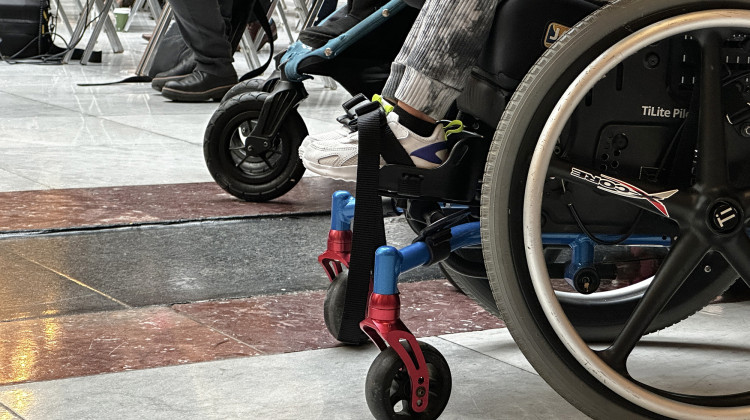
Indiana lawmakers are moving – reluctantly – to scale back labeling requirements for manufacturers of substances used in vaping, called e-liquids.
Pixabay/public domainIndiana lawmakers are moving – reluctantly – to scale back labeling requirements for manufacturers of substances used in vaping, called e-liquids.
The General Assembly created regulations for e-liquid manufacturers and retailers in 2017, such as requiring tamper-proof packaging and labeling. Now, proposed legislation would eliminate some of the labeling requirements. That includes scrapping a rule that every e-liquid container have an identifiable, trackable product code.
Michael Wilson sells vaping supplies. He says the code is a useful tool.
“Especially as a small business owner, having a permit number right there to ensure compliance, that we know what we’re putting on our shelf is compliant,” Wilson says.
Sen. Randy Head (R-Logansport) agrees. He wrote the 2017 bill – and he’s the author of this year’s measure, too. He says new federal rules limit what individual states can require of e-liquid manufacturers.
“Those were important when we wrote that bill. I argued at the time that they were necessary and I still wish that they could be there," Head says. "But they can’t.”
Head’s bill easily cleared the Senate Public Policy Committee.
 DONATE
DONATE








 View More Programs
View More Programs


 Support WFYI. We can't do it without you.
Support WFYI. We can't do it without you.